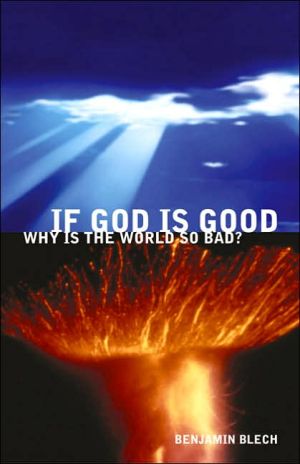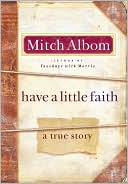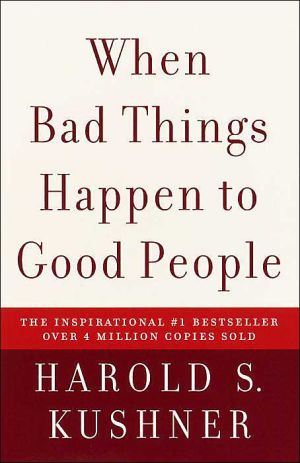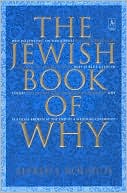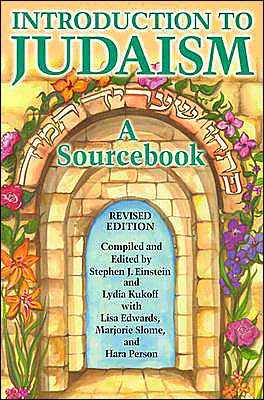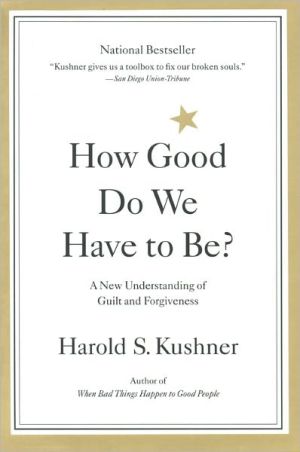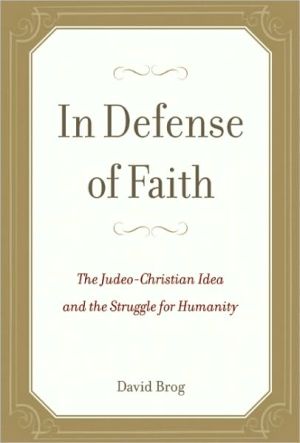If God Is Good, Why Is The World So Bad?
In these troubled times, people are asking very difficult questions about God and their faith:\ \ If I suffer, does that mean I deserve it?\ Why do innocent people, especially children, die tragically?\ How can God be so cruel?\ Does God ever intervene during times of trouble?\ Who really runs the world-God or man?\ Do my prayers do any good?\ Why does God allow sickness, torture and evil to exist?\ \ \ \ Benjamin Blech admits, the answers are not simple. There is no one-size-fits-all...
Search in google:
In These Troubled Times, People Are Asking Very Difficult Questions About God and Their Faith . . . Why does God allow sickness, torture and evil to exist? If I suffer, does that mean I deserve it? Why do innocent people, especially children, die tragically? Does God ever intervene during times of trouble? Who really runs the world—God or man? Do my prayers do any good? As author Benjamin Blech admits, the answers are not simple. There is no one-size-fits-all explanation. Indeed, not only are there many answers, but in different situations several explanations may apply. This fascinating analysis of Jewish wisdom on the subject of suffering is the fruit of thousands of years of debate, examination and struggle. Jewish wisdom teaches there are rich and inspiring answers to the ultimate question: If God is good, why is the world so bad?“Benjamin Blech puts God back where He belongs—in the driver’s seat of human events. This raises all sorts of fascinating questions that Rabbi Blech answers with clarity and wisdom. Drawing on centuries of Jewish learning, Rabbi Blech has given us a book that both comforts and inspires.”—Ari L. Goldman, author, The Search for God at Harvard and Living a Year of Kaddish“Rabbi Benjamin Blech deserves recognition as a 21st century sage—warm-hearted, wise, witty, insightful and, ultimately, inspirational. His wonderful new book is enhanced by his rich and phenomenally varied background as well as a prose style that is lucid, forceful and captivating. In short, every reader—Jew or Gentile, believer or skeptic—will feel enriched by a work that enhances our understanding and engagement with some of life’s most persistent and important questions.”—Michael Medved, radio talk show host and author, Hollywood vs. America“Rabbi Blech presents a revolutionary new book that will literally change the way we deal with life’s most difficult obstacles. In it, he provides groundbreaking answers to man’s most perplexing problems. This is a must-read for anyone who has ever contemplated the complex issues of life and death.”—Jewsweek Magazine“Ours is a generation in which many of us have to cope with traumas of both a personal and global nature. Rabbi Benjamin Blech’s latest book is an important read for those who seek insight and understanding.”—Rebbetzin Esther Jungreis, author, The Committed Life and The Committed Marriage Publishers Weekly As the title suggests, Blech picks up where Harold Kushner's classic When Bad Things Happen to Good People leaves off, and offers a Jewish corrective to Kushner's view. (For more on Kushner's latest work, see below.) If we believe that we are not at fault for what happens to us, Blech argues, "the feeling that the world is spinning out of control leaves one more frightened than ever." It is this "gloomy anarchistic view" that Blech counters in his "quest for serenity in the face of adversity." Biblical heroes who faced suffering and divine tests-Job, Abraham, Moses among them-serve as models for Blech's questions and answers, which are further enriched by Talmudic and midrashic teachings. Divided into three parts (Why Bad Things Happen to Good People; Why We Die; Why We Suffer), the book addresses prickly and poignant questions like life after death; the death of children; blame and guilt; aging, pain and illness; and faith after the Holocaust. An Orthodox rabbi and the child of Holocaust survivors, Blech offers several perspectives in the hope that each reader will find his or her truth in at least one; all are grounded in his belief that faith holds the answer. We will never be able to fully explain why the righteous suffer and the wicked prosper, he posits; maybe we need the suffering to allow us to mature, change and gain understanding. The bottom line, he stresses, is that "having questions doesn't make you a non-believer. Doubting isn't the same as denying." (Sept.) Copyright 2003 Reed Business Information.
"There was a man in the land of Uz and his name was Job. . . ."\ Thus begins one of the most famous of Biblical stories, the tale of a good and pious man, who, even when beset by calamity and tragedy, never falters in his allegiance to God.\ As the narrative opens, Satan doubts Job's faith, telling God that Job's devotion is only due to his blessings. Job is healthy, wealthy and happy, but if his fortunes were to be reversed, Satan slyly suggests, his faith would not stand up to the trial. In response, God permits Satan to test Job, and he does so most cruelly. Job becomes penniless. His children die. He is afflicted with a terribly painful disease. And yet he refuses to curse God. Instead, he declares,\ "The Lord has given, and the Lord has taken away. Blessed be the name of the Lord."\ Friends admonish Job to repent for his sins, insisting that his tragedies must be divine punishment for wrongs he committed. Why else, they declare, could he be suffering this way? "Think now, what innocent man ever perished?"\ they ask him. "Where have the upright been destroyed?" But Job knows he has done no wrong and refuses to repent. He pleads with God to explain why this evil has befallen him.\ In the end, God rewards Job for his steadfastness by restoring his wealth in double measure, his family and his health. Job's friends are chastised for adding to Job's grief, and the story ends happily with Job living in contentment to the age of 140.\ But Job never gets an answer. God's sole explanation for the suffering Job had to endure is a string of questions: "Where were you when I laid the Earth's foundations? . . . Can you send up an order to the clouds for an abundance of water to cover you? ... Can you hunt prey for the lion and satisfy the appetite of the king of beasts? . . . Is it by your wisdom that the hawk grows pinions,\ spreads his wings to the south?"4 In other words, God seems to be saying to Job, "I run this vast and complicated world, and you cannot possibly grasp the multitude of reasons why I do what I do."\ And yet we continue to try. And it is Job's name that inevitably comes up when we struggle to understand why God allows evil in the world, when we ask the age-old question: Why do bad things happen to good people?\ Surprisingly enough, the story may very well be fiction. Job never existed,\ according to many of the sages of the Talmud.5 So why is he in the Bible?\ Although Job is perhaps the only imaginary hero of Biblical personalities,\ he is at the same time the most universal of all of them. He is the father who has inexplicably lost his job and has no means of supporting his family. He is the mother who has just been told her child has terminal cancer. He is the Holocaust survivor who still wakes up screaming in the middle of the night.\ He is me, and he is you.\ That's why the book of Job is not really the story of a tragic figure of old.\ The book of Job is about twenty-first-century men and women who try to make sense out of the unfair circumstances of their lives even as they struggle to hold onto their beliefs. Most of all, the book of Job is about a dilemma which,\ sooner or later, every one of us must resolve in our lives. This dilemma is the apparent contradiction between three basic assumptions:\ \ God is just. He judges all of us with impartial fairness. He rewards the good, and He punishes the wicked.\ God is all-powerful. He can do anything. Nothing happens in the world without His willing it. Indeed, everything that happens is part of His plan.\ Job is a good man.\ \ \ \ Now as long as everything is going well with Job—he is healthy and wealthy—we can believe all three of these statements at the same time with no difficulty.\ But when Job's suffering begins, when he loses his possessions, his family and his health, we have a problem. We can no longer make sense of all three propositions simultaneously. We can now affirm any two only by denying the third.\ If God is both just and all-powerful, then it must be that the third statement is wrong—Job is not a good man; he is a sinner, and he deserves what is happening to him. But if Job is good and God causes his suffering nonetheless,\ then God cannot be just. Or if Job is good and God is not responsible for his suffering, then God cannot be all-powerful.\ For all three to be true appears to be impossible. So which one is wrong?\ Which one of these three assumptions are we going to sacrifice on the altar of reality? That is the question.\ \ 2003. All rights reserved. Reprinted from If God Is Good,\ Why Is The World So Bad? by Bejamin Blech. No part of this publication may be reproduced, stored in a retrieval system or transmitted in any form or by any means, without the written permission of the publisher. Publisher: Health Communications, Inc., 3201 SW 15th Street, Deerfield Beach, FL 33442.
\ Publishers WeeklyAs the title suggests, Blech picks up where Harold Kushner's classic When Bad Things Happen to Good People leaves off, and offers a Jewish corrective to Kushner's view. (For more on Kushner's latest work, see below.) If we believe that we are not at fault for what happens to us, Blech argues, "the feeling that the world is spinning out of control leaves one more frightened than ever." It is this "gloomy anarchistic view" that Blech counters in his "quest for serenity in the face of adversity." Biblical heroes who faced suffering and divine tests-Job, Abraham, Moses among them-serve as models for Blech's questions and answers, which are further enriched by Talmudic and midrashic teachings. Divided into three parts (Why Bad Things Happen to Good People; Why We Die; Why We Suffer), the book addresses prickly and poignant questions like life after death; the death of children; blame and guilt; aging, pain and illness; and faith after the Holocaust. An Orthodox rabbi and the child of Holocaust survivors, Blech offers several perspectives in the hope that each reader will find his or her truth in at least one; all are grounded in his belief that faith holds the answer. We will never be able to fully explain why the righteous suffer and the wicked prosper, he posits; maybe we need the suffering to allow us to mature, change and gain understanding. The bottom line, he stresses, is that "having questions doesn't make you a non-believer. Doubting isn't the same as denying." (Sept.) Copyright 2003 Reed Business Information.\ \
